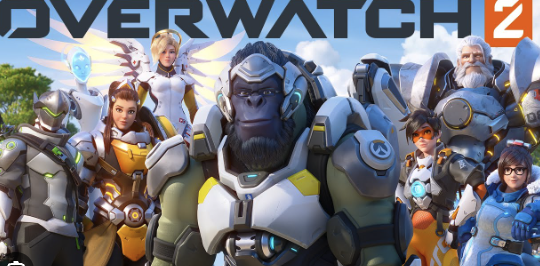
Copyright belongs to the author. All rights for commercial reuse must be obtained from the author, while non-commercial use must cite the source.
The issue can be summed up in one word: slow. To elaborate, there are numerous ways to stratify players at their peak popularity, but it hasn’t been done. For example, if we were to score players from 1 to 100, the most logical approach would be to group players scoring 1-20 in one tier, 21-40 in another, and so on. Yet, Overwatch forces players with scores as low as 1 to play in the same match as those scoring 100. This is frustrating for the low scorers who get easily defeated and equally frustrating for high scorers who feel held back, ultimately leading to a dissatisfactory experience for everyone. Here’s what Overwatch could have done but didn’t, or did too late:
1. A more appropriate ranking system. The ranking system in the first season was a disaster. The division between players above and below level 100 was stark. I remember being ranked 42, while a less skilled friend ranked 60, simply because he played fewer matches under level 100. This wasn’t just about skill; the system was riddled with bugs.
2. Custom workshops and solo competitive play. Constant emphasis on teamwork doesn’t mesh with players’ love for solo heroics. Creating a custom workshop for casual play or a solo competitive mode for lone wolves wouldn’t have been a huge task.
3. Forced team roles. If teamwork is so critical, it should have been implemented properly from the start. A single uncooperative player can ruin the experience for the other 11, which hardly fosters a team environment. Or at least provide a scoreboard.
4. Cheating issues. Emphasizing team play is fine, but not when Blizzard tells you it can’t handle cheats. By the third and fourth seasons, forming a six-player team meant entering a mode plagued by cheaters.
5. Hero issues. If you want me to play a tank or support role, at least make it rewarding by introducing new heroes that can stand alone, like Moira and Brigitte introduced later. Before Ana was strengthened, playing support had very little appeal.
Addressing even a few of these issues early on would have helped stratify players and foster healthy game development. Instead, the first four seasons went by without resolving any of these issues properly. The gaming environment became such that the more you annoyed others, the more fun you had, the more team-oriented the play, the more hurt you got.
Additional Note: Unlike Overwatch, games like Rainbow Six Siege and CS:GO allow even the least skilled players to contribute positively to their teams. If your aim is off in CS:GO, you can still call out enemy positions or distribute weapons. In Rainbow Six Siege, as long as you aren’t immediately eliminated, you can still contribute by using drones or monitoring security cameras. Only in Overwatch does the minimum skill level of a teammate act as a detriment, to the extent that being inactive might actually improve your team’s chances. This is the only game where a teammate can make negative contributions while supposedly emphasizing teamwork, which is absurd.